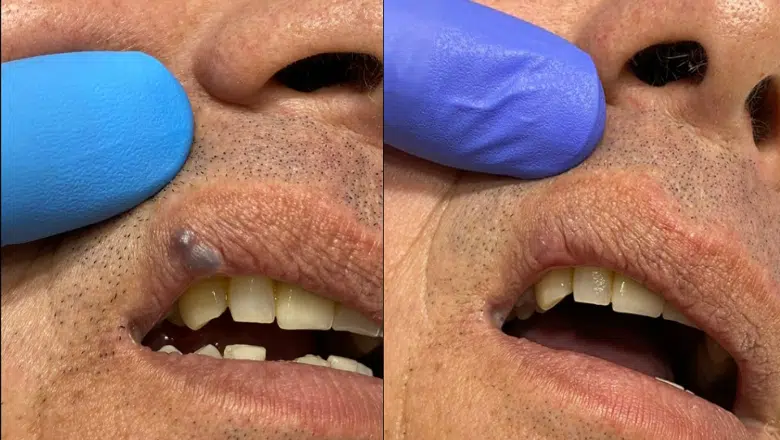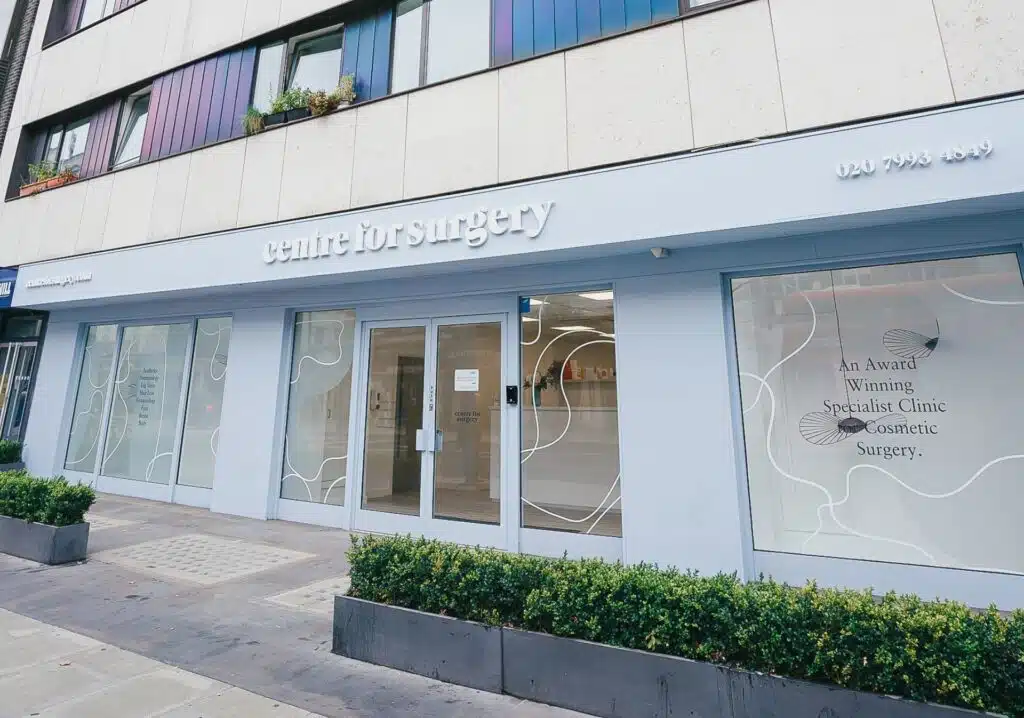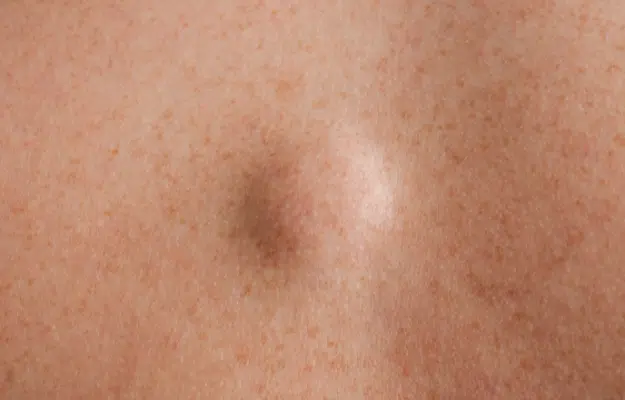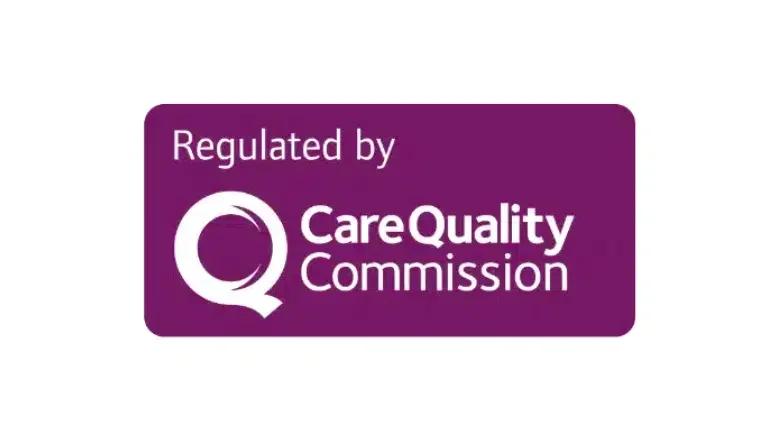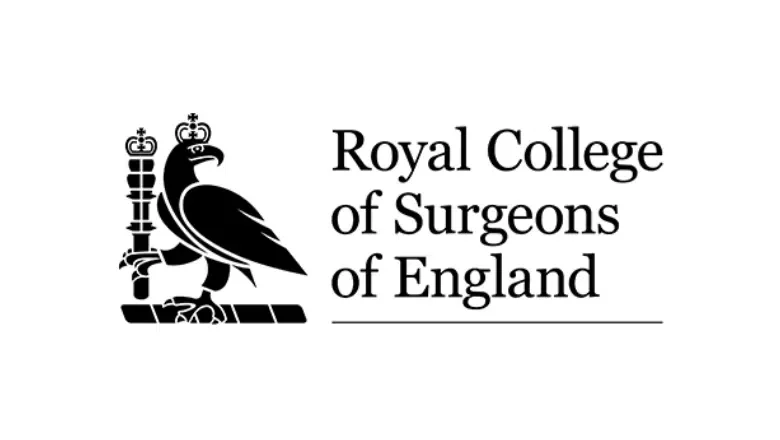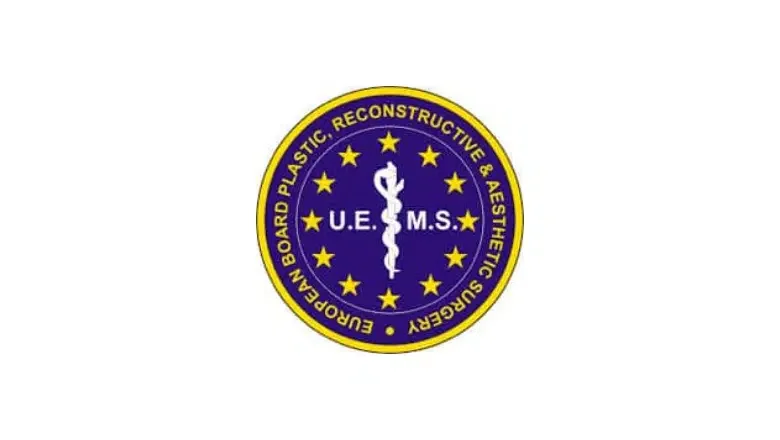Lip Lesion Surgery London
Lip Lesion Removal and Malignant Lip Lesion Treatment at Centre for Surgery, London
Understanding Lip Lesions: Benign vs Malignant
A lip lesion, an abnormal tissue formation, can range from benign (non-cancerous) to malignant (cancerous), posing varying health risks. The initial step in addressing a lip lesion is to conduct a biopsy. This procedure is crucial to ascertain the nature of the lesion, determining whether it is cancerous or not. The biopsy results guide the subsequent treatment approach, ensuring tailored and effective care.
The Importance of Expert Surgical Intervention
At Centre for Surgery in London, our team of highly experienced plastic surgeons specializes in lip lesion removal. This surgical procedure is designed not just to eliminate the lesion but also to enhance the aesthetic appearance of the lips. The removal of a malignant lip lesion is particularly significant as it reduces the risk of cancer progression and potential future complications.
The Dual Benefits of Lip Lesion Removal
The lip lesion removal procedure at Centre for Surgery serves a dual purpose. Firstly, it is a critical health intervention, especially when dealing with malignant lesions. Removing the cancerous tissue early can prevent further damage and spread, significantly improving long-term health outcomes. Secondly, our surgeons are adept at performing this procedure with an eye for aesthetic detail. This means that post-procedure, patients can expect not only a health benefit but also an improvement in the appearance of their lips. This aspect is crucial for individuals concerned about the visual impact of lip lesions.
Why Have Lip Lesion Removal?
The Critical Role of Lips in Daily Life
Lips are not only central to your smile but also play a pivotal role in speech and eating. Any abnormal growth or lesion on the lips can significantly impact these vital functions. Sudden growths, such as lip lesions, can be particularly concerning due to their unpredictability and potential for rapid development.
Cosmetic and Functional Impacts of Lip Lesions
Lip lesions can be visually unappealing, especially if they ulcerate, bleed, or grow large enough to distort the mouth’s shape. The cosmetic aspect is crucial, as the lips are a prominent facial feature. Beyond aesthetics, these lesions can also affect functional aspects like eating and speaking, if left untreated.
The Risks of Malignancy in Lip Lesions
Any lesion on the lip, whether it appears benign or not, carries a risk of malignancy. Basal Cell Carcinoma (BCC) and Squamous Cell Carcinoma (SCC) are common types of lip cancer. These can grow around the mouth and, if not addressed promptly, can lead to more severe health issues. Surgical removal of lip lesions, particularly when they are malignant, is often the recommended course of action to prevent further complications.
The Importance of Specialist Surgical Intervention
Given the aesthetic and functional significance of lips, lip surgery requires a high degree of expertise and precision. At Centre for Surgery in London, our Specialist Plastic Surgeons possess years of training specifically focused on the removal of lip tumours. This expertise is crucial to minimise any potential damage to your smile, speech, and eating functions. Our surgeons use advanced techniques to ensure the best possible outcomes, both functionally and aesthetically.
The Risks of Untreated Lip Lesions
It is crucial not to ignore or leave a lip lesion untreated, especially if it persists over time. A lesion that does not resolve on its own warrants professional evaluation to determine its nature and appropriate treatment. Early intervention is key in preventing the progression of potentially malignant lesions and in preserving the lip’s function and appearance.
Taking Action: Schedule a Consultation
If you notice a persistent lip lesion, it is advisable to seek a consultation promptly. Early diagnosis and treatment are essential for effective management. We provide comprehensive evaluations to determine the nature of the lip lesion and recommend the most suitable treatment approach.
What Are The Different Types of Lip Lesions?
Lip lesions come in various forms, ranging from benign (non-harmful) to malignant (cancerous). Understanding the different types of lip lesions is essential for effective diagnosis and treatment.
Common Benign Lip Lesions
-
Temporary or Benign Lesions: Many lip lesions are temporary and benign, often resolving without the need for surgical intervention. These include:
- Herpes Simplex Infection: This common viral infection can cause vesicles or small blisters around the lips. These lesions are typically self-limiting and resolve within a couple of weeks.
- Actinic Cheilitis (Farmer’s Lip): This is a precancerous condition characterised by dry, flaking spots, often affecting the lower lip. It is primarily attributed to prolonged sun exposure and lip dryness. Treatment initially involves moisturisers and lip balms to alleviate symptoms and protect the lips from further damage. This is followed by removal to reduce the risk of progression to SCC.
Venous Lake
A venous lake is a type of lip lesion characterised by a dark blue, round appearance. It typically looks like a normal part of the lip but is distinctly darker in colour. This condition results from dilated venules (small veins) within the lip tissue.
Causes and Characteristics of Venous Lakes
Venous lakes often develop due to various factors, including aging, sun exposure, or trauma to the lip area. These lesions are usually benign and can appear on any part of the lips. While they might resolve on their own, some venous lakes persist and can become a source of cosmetic concern or discomfort.
Symptoms and Impact
Venous lakes on the lips are generally painless and do not cause any significant medical issues. However, their appearance can be a cosmetic concern for many individuals, as the dark blue lesion can be quite noticeable. In some cases, they might become tender or sensitive, especially if subjected to frequent pressure or trauma.
Laser Treatment for Venous Lakes
We offer laser venous lake removal as a quick and effective treatment option. Laser therapy involves using focused light energy to target and eliminate the dilated venules causing the venous lake. This procedure is minimally invasive, with most patients experiencing little to no discomfort during the treatment.
Advantages of Laser Treatment
- Minimally Invasive: The procedure is less invasive compared to traditional surgical methods, reducing the risk of scarring and complications.
- Quick and Efficient: Laser treatment typically requires only a short session, and patients can often return to their daily activities immediately afterward.
- High Success Rate: Laser therapy effectively removes venous lakes, with a high rate of patient satisfaction regarding both the cosmetic and comfort outcomes.
Symptoms and Signs of Cancerous Lip Lesions
Understanding and Treating Different Types of Lip Cancers at Centre for Surgery, London
Lip Basal Cell Carcinoma (BCC)
Basal Cell Carcinoma (BCC) is the most prevalent form of skin cancer and can also affect the lips, particularly the upper lip.
Appearance and Symptoms
- Lip BCC often presents as a shiny or pink non-healing wound.
- It may appear as a flat, red-black growing tumour.
- Over time, it can develop into a tumour, potentially causing lip deformity.
Treatment
The primary treatment for Lip BCC at Centre for Surgery is surgical tumour excision. This method involves removing the cancerous tissue, aiming to preserve as much healthy tissue as possible and maintain the lips’ functionality and appearance.
Lip Squamous Cell Carcinoma (SCC)
SCC is the second most common type of skin cancer and frequently affects the lower lips.
Appearance and Symptoms
- Lip SCC manifests as non-healing wounds with raised edges.
- Patients may notice redness, scaling, and sometimes tumour growth.
- SCC is more prone to spreading to nearby tissues, lymph nodes, and distant organs compared to BCC.
Treatment
Surgical excision of the lip tumour is the recommended treatment for SCC. The goal is to remove the cancerous cells thoroughly while minimising impact on lip function and aesthetics.
Lip Melanoma
Melanoma is a more aggressive skin cancer that can occur on the lips, although it is less common.
Appearance and Symptoms
- It typically presents as a hyperpigmented, irregular lesion.
- Rapid changes in shape and size are common characteristics.
- Early detection and treatment are crucial due to its aggressive nature and potential to spread quickly.
Treatment
Early diagnosis and prompt treatment are vital for lip melanoma. Treatment usually involves surgical removal, often accompanied by other therapies depending on the cancer’s stage and spread.
Importance of Early Detection and Specialised Treatment
- Early Diagnosis: Prompt recognition of changes or growths on the lips is critical for successful treatment, especially for aggressive types like melanoma.
- Expertise in Surgical Treatment: At Centre for Surgery, our specialists are experienced in the precise surgical techniques required for effectively treating lip cancers while maintaining aesthetic and functional integrity.
Risk Factors for Lip Cancer
Major Risk Factors for Lip Cancer
- Fair Skin: Individuals with lighter skin have less melanin, the pigment that provides some protection against UV radiation. As a result, they are more susceptible to the damaging effects of the sun, increasing their risk of lip cancer.
- Compromised Immune System: A weakened immune system, which could be due to various medical conditions or certain medications, can reduce the body’s ability to fight off cancers, including lip cancer.
- Age Factor: The risk of lip cancer increases with age. This is likely due to cumulative exposure to risk factors over time, including UV radiation and tobacco use.
- Prolonged Sun Exposure and Tanning Beds: Ultraviolet (UV) radiation, whether from the sun or tanning beds, is a significant risk factor for lip cancer. UV radiation can damage the DNA in skin cells, leading to mutations and cancer.
- Smoking: Tobacco use is a well-established risk factor for various cancers, including lip cancer. The carcinogens in tobacco can directly affect the cells in the lips, leading to cancerous changes.
Preventive Measures
- Sun Protection: Regular use of lip balms with SPF, avoiding prolonged sun exposure, and wearing protective clothing can significantly reduce the risk.
- Avoiding Tanning Beds: Steering clear of artificial sources of UV radiation, like tanning beds, is advisable.
- Quitting Smoking: Giving up tobacco in all forms is beneficial not only for reducing the risk of lip cancer but also for overall health.
- Regular Check-ups: Regular skin and lip examinations can help in early detection, especially for those with risk factors.
How to Prepare for Lip Lesion Removal Surgery
Initial Consultation and Assessment
- Thorough Examination: Your first visit to Centre for Surgery will involve a detailed assessment of the lip lesion. The surgeon will examine the size, type, and location of the lesion and discuss your expectations and aesthetic goals.
- Health Evaluation: A comprehensive review of your overall health, including any existing medical conditions, will be conducted to ensure you are a suitable candidate for the surgery.
- Customised Treatment Plan: Based on the assessment, your surgeon will create a tailored treatment plan that aligns with your specific needs and ensures the best possible outcome.
Pre-Surgical Instructions
To prepare for lip lesion removal surgery, patients are advised to follow certain guidelines:
- Stop Smoking: Smoking can significantly hinder the healing process. It’s advised to quit smoking at least a few weeks before the surgery to improve recovery and reduce the risk of complications.
-
Discontinue Certain Medications and Supplements:
- Blood Thinners: Medications like aspirin, ibuprofen, and certain herbal supplements can increase the risk of bleeding. It’s essential to stop these medications as advised by your surgeon.
- Consult Your Surgeon: Before stopping any medication, consult with your surgeon to ensure it’s safe to do so.
-
Avoid Tanning Beds and Sun Exposure:
- Prolonged exposure to UV radiation can affect skin health and may complicate the healing process.
- Use sun protection and avoid tanning beds in the weeks leading up to the surgery.
Additional Preparatory Steps
- Arrange for Assistance: Depending on the extent of the surgery, you may need someone to drive you home and assist you for the first few days post-surgery.
- Prepare Your Recovery Area: Set up a comfortable space at home where you can rest and recover with all necessary items within easy reach.
- Postoperative Care Supplies: Stock up on recommended supplies such as cold packs, prescribed medications, and gentle cleaning products for post-operative care.
Treatment Options for Lip Lesions and Lip Cancer
Lip lesion removal surgery involves various techniques designed to effectively address different types of lip tumours and lesions. The specific approach chosen by surgeons at Centre for Surgery depends on several factors, including the size, location, and type of the tumour, whether it’s BCC, SCC, Melanoma, or a venous lake.
Surgical Procedures for Lip Lesion Removal
Lip Tumour Excision with Primary Closure
This method is typically used for removing smaller lip cancers and benign tumours affecting less than a third of the lip’s length. In this procedure, the surgeon excises the tumour and then directly closes the wound without the need for skin grafts or manipulation. The goal is to bring the wound edges together using very fine suture lines, ensuring minimal deformity and scarring for optimal healing.
Lip Tumour Excision with Skin Graft
When dealing with larger lip tumours, where complete removal might cause lip deformity, a skin graft becomes necessary. This technique prevents potential issues such as a crooked lip or altered smile post-surgery. Skin grafts used in lip reconstruction are not always harvested from distant body parts; they can also be sections of normal skin slightly relocated from nearby areas like the chin or cheek.
Advanced Plastic Surgery Techniques: W-Plasty and Z-Plasty
These are sophisticated techniques in plastic surgery, employed for removing lip tumours and reconstructing the resultant defects. W- and Z-plasty involve creating incisions shaped like the letters ‘W’ and ‘Z’, which allow surgeons greater freedom to manipulate nearby skin for defect repair. These techniques are beneficial in preventing skin contraction and mouth deformity. They also lead to better healing outcomes and minimal scarring.
Mohs Surgery
Note: This technique is not offered at Centre for Surgery. Mohs surgery involves the incremental removal of cancerous tissue, with immediate pathological examination during the procedure. It ensures complete cancer removal while conserving as much healthy tissue as possible. If cancer cells are found at the margins, additional tissue is removed until clear margins are achieved.
Additional Treatments (Not Offered at Centre for Surgery)
- Radiotherapy. This might be required post-surgery in cases of lip cancer to ensure any remaining cancerous cells are eradicated.
- Chemotherapy. For more invasive or metastatic forms of BCC and SCC, chemotherapy may be necessary to ensure comprehensive treatment following lip surgery.
Recovery after Lip Lesion Removal Surgery
Initial Healing Phase
- Wound Healing: The surgical wound on your lips typically heals within approximately a week. This timeframe can vary slightly depending on the individual’s healing capacity, the size of the lesion removed, and the specific surgical technique used.
- Return to Daily Activities: Most patients find they can resume work and their routine daily activities within 1 to 3 days following the surgery. This quick recovery period is one of the benefits of lip lesion removal procedures, especially when they are minimally invasive.
Activity Restrictions and Precautions
- Avoidance of Contact Sports: It is crucial to avoid activities that could impact the healing wound, such as contact sports. This precaution helps prevent any trauma to the lips and ensures uninterrupted healing.
- Gradual Resumption of Physical Activities: While returning to daily activities is generally quick, it’s essential to gradually increase the intensity of physical activities, especially those involving facial movements or potential lip contact.
Managing Post-Surgical Symptoms
- Mild Lip Tightness: It’s common to experience a sensation of tightness in the lips during the first few days post-surgery. This feeling is typically a normal part of the healing process and should gradually diminish over a few weeks.
- Pain Management: Any discomfort following the surgery can usually be effectively managed with over-the-counter pain medications. It’s important to follow your surgeon’s advice regarding which medications are safe and suitable for you.
- Ice Compress Application: Applying an ice compress can be beneficial in reducing swelling and providing relief from discomfort. Ensure to wrap the ice in a cloth to avoid direct contact with the skin, and use it intermittently to prevent skin damage.
Long-Term Recovery and Care
- Scar Care: If there are concerns about scarring, your surgeon may recommend specific treatments or products to aid in scar minimisation.
- Follow-Up Appointments: Post-surgical follow-up appointments are essential to monitor healing, address any concerns, and ensure the best possible outcome.
Lip Lesion London Cost & Fees – How Much Is Lip Lesion Removal London?
Determinants of Cost
The cost of lip lesion removal surgery in London is influenced by several key factors:
- Type of Lip Lesion: Different lesions require varying levels of complexity in removal. For instance, benign lesions like venous lakes may need a simpler procedure compared to malignant lesions like BCC or SCC, which could require more intricate surgery.
- Surgeon’s Expertise and Experience: The skill level and qualifications of the surgeon performing the procedure play a significant role in the cost. Highly experienced surgeons, particularly those specialising in cosmetic and reconstructive facial surgeries, might charge more due to their expertise.
- Surgical Technique Used: The specific surgical method employed (e.g., simple excision, excision with skin graft, Mohs surgery) can affect the overall cost. More complex techniques generally lead to higher costs.
- Facility and Equipment: The use of advanced technology and the choice of surgical facility also factor into the cost. State-of-the-art facilities with specialised equipment might incur additional charges.
Importance of Surgeon Selection
While cost is an important consideration, it should not be the sole criterion for choosing a surgeon. The expertise, experience, and reputation of the surgeon are crucial for ensuring safe and aesthetically pleasing outcomes. Opting for a less experienced surgeon based solely on lower costs could compromise the quality of results and potentially lead to additional costs in the long run, especially if revisions or complications arise.
Payment Plans and Financing Options
Recognising that the cost can be a significant consideration for many patients, Centre for Surgery offers various payment plans and surgery financing options. These options are designed to make the procedure more accessible and affordable:
- Payment Plans: Flexible payment plans allow patients to spread the cost of surgery over a period, easing the immediate financial burden.
- Surgery Financing: Working in partnership with financial institutions, we offer financing options, including plans with 0% APR, to cater to different budgetary needs.
Consultation for Cost Estimate and Financing
It is recommended that you schedule an appointment with our team to obtain a personalised cost estimate and explore financing options. During the consultation, you will receive detailed information tailored to your specific case, allowing you to make an informed decision.
Why Choose Centre for Surgery for Your Lip Lesion Removal
Premier Lip Lesion Removal Services in London
At Centre for Surgery, we specialise in providing top-tier lip lesion removal procedures, combining advanced surgical techniques with a patient-focused approach. Our clinic, situated in the heart of London on Baker Street, is renowned for its expert team of surgeons who are dedicated to delivering exceptional results in lip lesion treatment.
Patient Testimonials
- John’s Experience: “After noticing a persistent growth on my lower lip, I turned to Centre for Surgery. The care and expertise I received were outstanding. Post-surgery, my lip looks natural, and the lesion is completely gone. I couldn’t be happier with the results and the professional care throughout the process.”
- Emma’s Journey: “Dealing with a lip lesion was quite distressing, but the team at Centre for Surgery made the experience much more comfortable. The surgery was successful, and the recovery was smoother than I expected. Their attention to detail and patient comfort is truly commendable.”
- Aisha’s Feedback: “The compassionate approach at Centre for Surgery made a significant difference in my treatment journey. From the initial consultation to the post-surgery follow-up, every step was handled with utmost care. I am extremely satisfied with the outcome and the minimal scarring.”
Schedule a Consultation
To learn more about our lip lesion removal services or to schedule a consultation, please contact us:
- Phone: 0207 993 4849
- Email: contact@centreforsurgery.com
- Address: 95-97 Baker Street, London W1U 6RN
More About Us and Our Services
For additional information about our clinic and the range of services we offer, visit our About Us page. Here, you can find detailed insights into our expertise, facilities, and commitment to patient care.
Financing Options
We understand that financial considerations are important. Therefore, we offer a variety of finance options, including 0% APR with Chrysalis Finance, to make our procedures accessible to more patients. Learn more about our finance options to find a plan that best suits your needs.
Explore Our Plastic Surgery Blog
For more information and insights into lip lesion removal and other plastic surgery topics, visit our plastic surgery blog. Our blog is a resourceful platform where you can find valuable content, tips, and updates in the field of cosmetic surgery.
Clinic FAQs
We encourage our prospective patients to visit our Clinic FAQs page for answers to common questions about procedures, preparation, recovery, and more.
Visit Our Baker Street Clinic
Experience our exceptional care firsthand by visiting our Baker Street clinic. Our clinic is designed to provide a comfortable and reassuring environment, ensuring a positive experience for all our patients.
At Centre for Surgery, we are committed to providing the highest standard of care in lip lesion removal, helping our patients achieve the best possible aesthetic and functional outcomes. Contact us today to start your journey towards enhanced well-being and confidence.
FAQs
-
What Is a Lesion on the Lip?A lesion on the lip refers to any abnormal growth, ulceration, or change in the lip's shape, colour, texture, or feel. Lesions can range from benign to potentially malignant and require different treatment approaches.
-
What Are the Three Types of Lesions?Lesions on the skin or mucous membranes can be categorised into three primary types:
Fluid-Filled Lesions: These include pustules and vesicles, which are small blisters filled with fluid.
Solid Mass Lesions: These encompass tumours and nodules, which are raised areas of tissue.
Flat Lesions: This category includes macules and patches, which are flat areas that differ in colour or texture from the surrounding skin. -
What Is a Lower Lip Lesion?Lower lip lesions are abnormal growths or changes in the tissue of the lower lip. Among the most common are mucocoeles, which are fluid-filled cysts typically found on the inner portion of the lower lip. Such inner lip lesions, including mucocoeles, can also occur in other areas of the mouth, like the tongue, gums, and inner cheeks. Generally, these blisters are not dangerous and tend to be painless.
-
Why Do I Have a Small Bump on My Lip?A small bump on your lip can have various causes, including a herpes infection, lip cancer, or a venous lake. The exact cause can be determined through a professional examination and, if necessary, further diagnostic tests.
-
How Common Is Skin Cancer on Lips?Skin cancer on the lips is relatively uncommon compared to other skin cancers. However, its potential impact on health and appearance makes it a significant concern.
-
What Does a Lesion Look Like?A lesion is an abnormal area on the skin or mucous membrane that may differ in colour, texture, or elevation from the surrounding tissue. It can be a bump, patch, or growth and may be either benign or malignant.
-
What Does a Cancerous Lesion Look Like?Cancerous lesions can vary in appearance but often have certain common characteristics. They may appear scaly, rough, oozing, or bleeding and may not heal over time. Cancerous lesions can also show changes in colour, size, or shape.
-
Is a Lesion a Tumour?A lesion is a general term for any area of damaged or abnormal tissue, which can arise from injury or disease. While all tumours (abnormal growths of tissue) are technically lesions, not all lesions are tumours. Lesions can be non-tumorous abnormalities like ulcers or cysts.
-
What Causes Lesions?Lesions can be caused by various factors, including:
Allergic Reactions: Contact with allergens can lead to skin lesions.
Diseases: Certain illnesses, both skin-related and systemic, can result in lesions.
Genetics: Some lesions are the result of inherited conditions.
Medications: Reactions to medications can manifest as skin or mucous membrane lesions.
Sun Exposure: Prolonged or intense sun exposure can cause lesions, some of which may be precancerous or cancerous. -
What Are Facial Lesions?Facial lesions are abnormal bumps or patches on the face. They can manifest in various forms, such as cracks, sores, or areas of abnormal skin discolouration. These lesions can be due to a wide range of causes, including skin conditions, infections, or environmental factors.
-
Is the Dark Spot on My Lip Cancer?Not every new spot or mark on the lips is indicative of lip cancer. However, if you notice a spot that is growing, changing in shape, size, or colour, it's advisable to have it checked by a plastic surgeon as soon as possible.
-
Does Lip Cancer Look Like a Cold Sore?Lip cancer can initially resemble a cold sore. However, a key difference is that lip cancer tends to be more persistent or changes in shape, colour, and size over time, unlike a typical cold sore.
-
What Does the Start of Lip Cancer Look Like?Early stages of lip cancer can sometimes resemble chapped lips, but with a notable difference - the lesion takes a long time to heal. Other appearances of lip cancer include growths, ulcers, flat hard lesions, or an increasing mass on the lip.
-
What Is the Survival Rate of Lip Cancer?Generally, lip cancer has a high survival rate. Statistics indicate that up to 94% of patients with lip cancer live for more than five years following diagnosis and treatment. Successful surgical removal often results in a cure, especially if the cancer has not spread to other parts of the body.
-
How Do You Get Rid of Lip Lesions?The treatment for lip lesions varies depending on their type. Herpes lesions often resolve independently. Inflammatory lesions might require creams and hydration for treatment. For tumours and lip cancers, surgical intervention is typically the most suitable treatment.
-
How Do They Remove Lip Cancer?Lip cancer is typically removed through a procedure known as wide surgical excision, or alternatively, through Mohs surgery. Following the removal of the cancerous tissue, the wound is closed. This closure can be achieved through direct suturing, which is called primary closure, or through more complex methods like tissue reconstruction or skin grafting. The chosen method depends on the size and location of the cancer.
-
How Is Squamous Cell Carcinoma of the Lip Treated?Squamous Cell Carcinoma (SCC) of the lips is typically treated through surgeries such as Mohs surgery or wide surgical excision. Post-removal, various reconstructive techniques like Z-plasty, W-plasty, skin grafting, and primary closure are employed to restore the lip's appearance and function.
-
Does Lip Cancer Spread?The likelihood of lip cancer spreading depends on its type. Melanoma, for instance, has a higher chance of spreading. Squamous Cell Carcinoma (SCC) presents a lesser risk, and Basal Cell Carcinoma (BCC) has the least likelihood of spreading. Regardless of the type, early detection and treatment are crucial.
-
Where Does Lip Cancer Spread?Lip cancer has the potential to spread to various areas depending on its type. This can include nearby organs, lymph nodes, bones, lungs, and even the brain. The likelihood and extent of spreading vary based on the cancer's aggressiveness and type.


